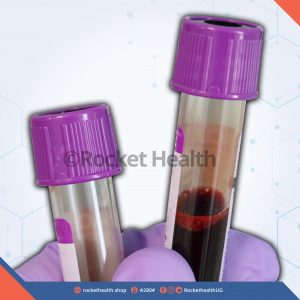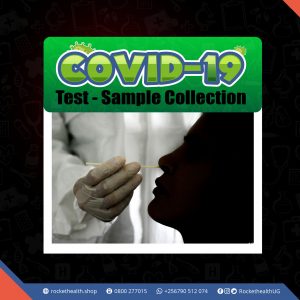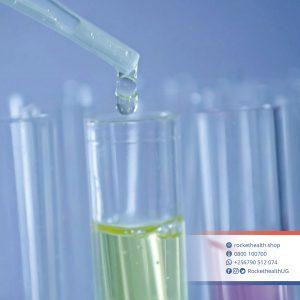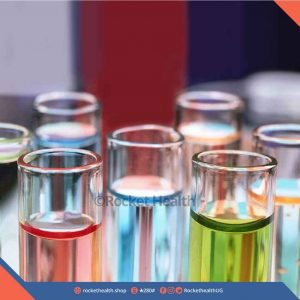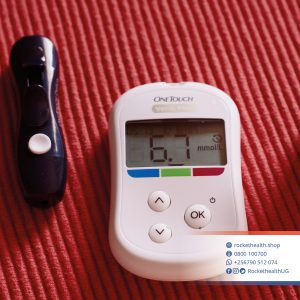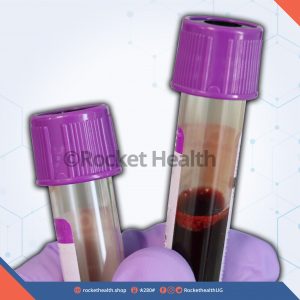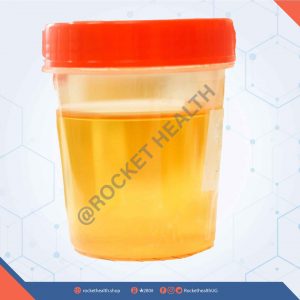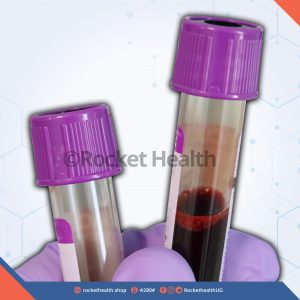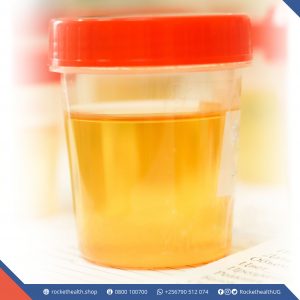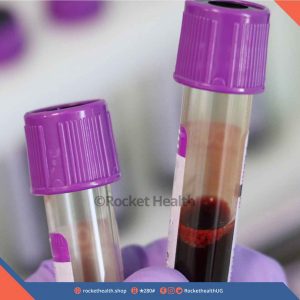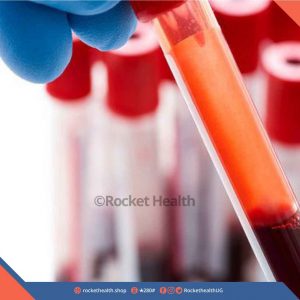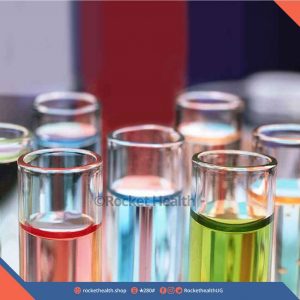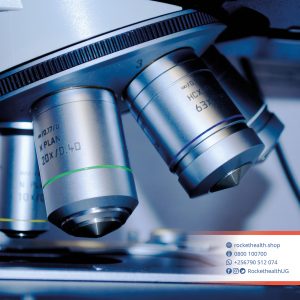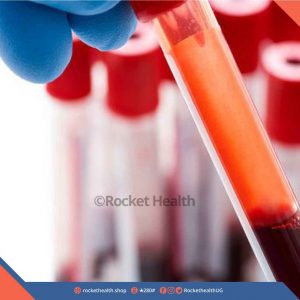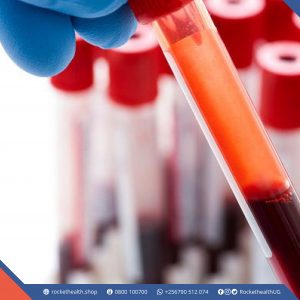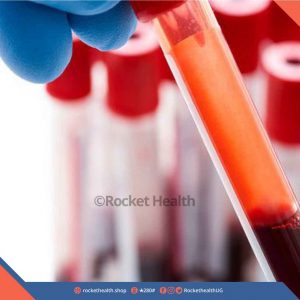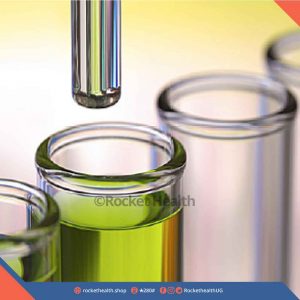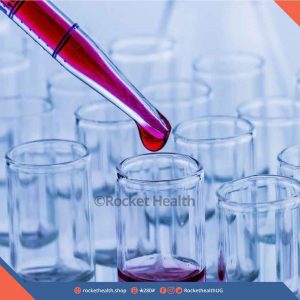FASTING BLOOD SUGAR
A test done to detect or monitor diabetes condition by measuring the amount of sugar (glucose) in the blood after having no meal for at least 8 hours.
Blood.
Inform your doctor if you are on any medications, have any allergies or underlying medical conditions before your Fasting Blood Sugar. Fasting blood sugar test is done after you fasted (without eating anything) for a whole night or for 8 to 12 hours. Usually, the blood is drawn in the morning after overnight fasting. Drinking water is not prohibited.
A fasting blood sugar (FBS) test is used to measure the amount of glucose (sugar) present in your blood after fasting for a whole night or for 8 hours. Glucose is the primary energy source for the body’s cells and the only energy source for the brain and nervous system. A steady supply must be available for use, and a relatively constant level of glucose must be maintained in the blood.
UGX 8,000FASTING BLOOD SUGAR
UGX 8,000RANDOM BLOOD SUGAR (RBS)
This is test that measures blood glucose regardless of when you last had a meal. Random testing is useful because glucose levels in healthy people do not vary widely through out the day so glucose levels that vary widely may mean a problem.
Blood.
No specific patient preparation protocol required. Inform your doctor if you are on any medications or have any underlying medical conditions or allergies before undergoing this test.
Glucose is the primary energy source for the body’s cells and the only energy source for the brain and nervous system. A steady supply must be available for use, and a relatively constant level of glucose must be maintained in the blood. A random blood sugar test is used to measure the amount of glucose (sugar) in your blood without any fasting conditions. In this test, the blood is drawn randomly at any point of time in a day.
UGX 8,000RANDOM BLOOD SUGAR (RBS)
UGX 8,000BLOOD GROUPING
Test that shows what type of blood you carry (A, B, AB and O) including Rh factor. Knowing your blood type enables safe blood donation and transfusion.
Blood.
No specific patient preparation protocol required. Inform your doctor if you are on any medications or have any underlying medical conditions or allergies before undergoing this test.
Blood grouping detects the presence or absence of these antigens to determine a person’s ABO blood group and Rh type. Blood groups are based on the markers (specific carbohydrates or proteins) or antigens on the surface of red blood cells (RBCs). Two major antigens or surface identifiers on human RBCs are the A and B antigens. Another important surface antigen is called Rh. People whose red blood cells have A antigens are in blood group A, those with B antigens are group B, those with both A and B antigens are in group AB, and those who do not have either of these markers are in blood group O. If the Rh protein is present on the red blood cells, a person’s blood type is Rh+ (positive); if it is absent, the person’s blood is type Rh- (negative).
UGX 10,000BLOOD GROUPING
UGX 10,000MALARIA BLOODSLIDE + RDT
These are tests used to diagnose malaria. All suspected cases of malaria are confirmed using either microscopy or a rapid diagnostic test.
Blood.
Inform your doctor if you are on any medications or have any underlying medical conditions or allergies before undergoing this test. For this test, fasting for at least 8 to 12 hours is recommended.
Malaria is an infectious disease caused by Plasmodium parasites. These parasites are primarily spread by the bite of infected female Anopheles mosquitos.
UGX 10,000MALARIA BLOODSLIDE + RDT
UGX 10,000URINALYSIS
A urinalysis is a lab test used to detect cells and substances in the urine. it is used to diagnose urinary tract infections, kidney disorder, diabetes and other conditions.
Urine.
No specific patient preparation protocol required. Inform your doctor if you are on any medications or have any underlying medical conditions or allergies before undergoing this test.
A urinalysis is a group of physical, chemical, and microscopic tests. The tests detect and/or measure several substances in the urine, such as byproducts of normal and abnormal metabolism, cells, cellular fragments, and bacteria.
UGX 10,000URINALYSIS
UGX 10,000Lab Results Tele-Consultation
Lab Results Tele-Consultation is meant for customers who order lab tests services and want our rocket health doctors to call and explain for them the results.
UGX 10,000Lab Results Tele-Consultation
UGX 10,000BRUCELLA AGGLUTINATION TEST
This a screening test for the diagnosis of brucellosis in the human body.
Blood.
No specific patient preparation protocol required. Inform your doctor if you are on any medications or have any underlying medical conditions or allergies before undergoing this test.
Brucellolis is a zoonotic disease (disease that attacks both humans and animals), caused by different types of the brucella bacteria. When humans come in contact with an infected animal or animal products that are contaminated with Brucella, brucellosis may result. Most human infections are occupational. Infection is generally via skin wounds, but the organisms can also be inhaled. Another common route of Brucella infection is eating or drinking infected dairy products and (meat)that have not been pasteurized.
UGX 15,000BRUCELLA AGGLUTINATION TEST
UGX 15,000ERYTHROCYTE SEDIMENTATION RATE
Erythrocyte sedimentation rate (ESR ) test helps to determine if you have a chronic inflammatory condition in the body such as arthritis.
Blood.
No specific patient preparation protocol required. Inform your doctor if you are on any medications or have any underlying medical conditions or allergies before undergoing this test.
Erythrocyte sedimentation rate (ESR or sed rate) is a test that indirectly measures the degree of inflammation present in the body. The test actually measures the rate of fall (sedimentation) of erythrocytes (red blood cells) in a sample of blood that has been placed into a tall, thin, vertical tube.
UGX 15,000ERYTHROCYTE SEDIMENTATION RATE
UGX 15,000BLOOD PREGNANCY TEST (HCG QUALITATIVE)
A blood test that checks for the hCG (human chorionic gonadotriphin) hormone in your blood that is produced during pregnancy.
Blood.
No specific patient preparation protocol required. Inform your doctor if you are on any medications or have any underlying medical conditions or allergies before undergoing this test.
Human chorionic gonadotropin (hCG) is a hormone produced by the placenta of a pregnant woman. HCG can be detected in blood samples after 8-11 days of conception. The levels of HCG doubles continuously for every 48-72 hours and the peak levels can be observed during 8-11 weeks after conception.
UGX 15,000BLOOD PREGNANCY TEST (HCG QUALITATIVE)
UGX 15,000STOOL ANALYSIS
These are series of stool tests used to check for digestive tract infection, viruses, bacteria, poor nutrient absorption or cancer.
Stool.
No specific patient preparation protocol required. Inform your doctor if you are on any medications or have any underlying medical conditions or allergies before undergoing this test.
For a stool analysis, a stool sample is collected in a clean container and then sent to the laboratory. Laboratory analysis includes microscopic examination, chemical tests, and microbiologic tests. The stool will be checked for color, consistency, amount, shape, odor, and the presence of mucus. The stool may be examined for hidden (occult) blood, fat, meat fibers, bile, white blood cells, and sugars called reducing substances. The pH of the stool also may be measured. A stool culture is done to find out if bacteria may be causing an infection.
UGX 15,000STOOL ANALYSIS
UGX 15,000SYPHILLIS TEST (TPHA)
This blood test is used to check for presence of the bacteria that causes syphilis.
Blood.
No specific patient preparation protocol required. Inform your doctor if you are on any medications or have any underlying medical conditions or allergies before undergoing this test.
Syphilis is an infection caused by the bacterium Treponema pallidum that is most often spread by sexual contact, such as through direct contact with a syphilis sore (chancre), a firm, raised, painless sore. The most common syphilis tests detect antibodies in the blood that are produced in response to a T. pallidum infection.
UGX 15,000SYPHILLIS TEST (TPHA)
UGX 15,000SPUTUM ZN-STAIN
Laboratory test performed on a sample of your sputum to help diagnose if you have TB. A culture is another kind of test that may be done to detect the presence of TB bacteria.
Blood.
No specific patient preparation protocol required.
Mycobacterium tuberculosis (the cause of tuberculosis) can be identified using a staining technique called the Zhiel-Nielsen stain. This test makes it possible to visualise the organism in the microscope by staining it basing on the properties of its cell wall.
UGX 15,000SPUTUM ZN-STAIN
UGX 15,000Typhoid (blood) test
This is a blood test used to check for Typhoid fever.
Blood.
No specific patient preparation protocol required. Inform your doctor if you are on any medications or have any underlying medical conditions or allergies before undergoing this test.
Typhoid is a systemic disease characterised by fever and abdominal pain caused by the bacterium Salmonella typhimurium (S. typhi). The bacterium lives in the intestines and bloodstream of humans. Typhoid is spread by eating or drinking food or water contaminated with the feces of an infected person
UGX 15,000Typhoid (blood) test
UGX 15,000COMPLETE BLOOD COUNT
Test that measures several components and features of your blood and is used to evaluate your overall health and check for many disorders like anemia, infection, leukemia.
Blood.
No specific patient preparation protocol required. Inform your doctor if you are on any medications or have any underlying medical conditions or allergies before undergoing this test.
This test is used to determine general health status, screen for disorders and evaluate nutritional status. It can help diagnose conditions such as anemia, blood cancers and infections. The complete blood count (CBC) is a test that measures the cells that circulate in blood. Blood consists of three types of cells suspended in a fluid called plasma: white blood cells (WBCs), red blood cells (RBCs), and platelets (PLTs). They are produced and mature primarily in the bone marrow and are then released into the bloodstream as needed. The readings vary with sex, age, physiological state, and general health.
UGX 20,000COMPLETE BLOOD COUNT
UGX 20,000H.PYLORI ANTIBODY TEST
This blood test checks for antibodies to H.pylori a bacteria that causes peptic ulcers. A positive results means you either are currently infected or have been infected in the past.
Blood.
No specific patient preparation protocol required. Inform your doctor if you are on any medications or have any underlying medical conditions or allergies before undergoing this test.
To diagnose an infection with Helicobacter pylori (H. pylori). Helicobacter Pylori H. Pylori is a spiral-shaped bacterium and attack the lining of the stomach. Due to its spiral shape, it penetrates into the stomach and gets protected by the mucus. Hence, immune cells are not able to reach them. This bacteria cause serious stomach problems like peptic ulcer, gastritis and most of the stomach ulcers. Antigens are the foreign substances that induce the immune responses to produce antibodies in the human body.
UGX 20,000H.PYLORI ANTIBODY TEST
UGX 20,000Calcium
Serum calcium is a blood test used to measure the amount of calcium in the blood to screen or monitor bone diseases or calcium regulation disorders.
Blood.
You may be instructed to stop taking certain medications, such as lithium, antacids, diuretics, and vitamin D supplements, among others, to ensure the most accurate test results.
It is essential for cell signaling and the proper functioning of muscles, nerves, and the heart. Calcium is needed for blood clotting and is crucial for the formation, density, and maintenance of bones and teeth. This test measures the amount of calcium in the blood or urine, which reflects the amount of total and ionized calcium in the body.
UGX 20,000Calcium
UGX 20,000Creatinine
A carcinoembryonic antigen (CEA) test is a blood test used to help diagnose and manage certain types of cancers during treatment.
Blood.
You may be instructed to fast overnight or refrain from eating cooked meat; some studies have shown that eating cooked meat prior to testing can temporarily increase the level of creatinine. If a 24-hour urine sample is being collected, it is important to save all the urine produced during that time period.
Both creatine and creatinine are produced by the body at a relatively constant rate. Since almost all creatinine is filtered from the blood by the kidneys and released into the urine, blood levels are usually a good indicator of how well the kidneys are working. The amount of creatinine you produce depends on your body size and your muscle mass. For this reason, creatinine levels are usually slightly higher in men than in women and children. Results from a blood creatinine test may be used in combination with results from other tests, such as a 24-hour urine creatinine test, to calculate values that are used to evaluate kidney function.
UGX 20,000Creatinine
UGX 20,000

